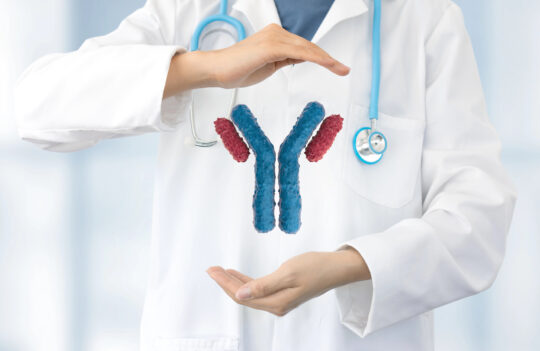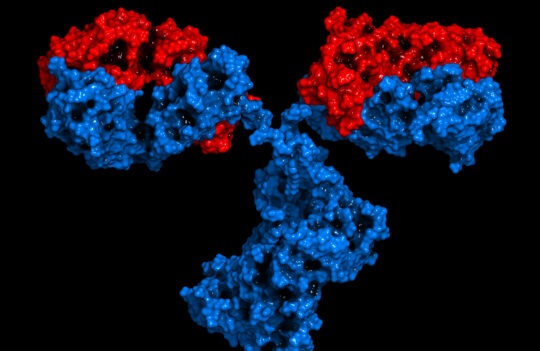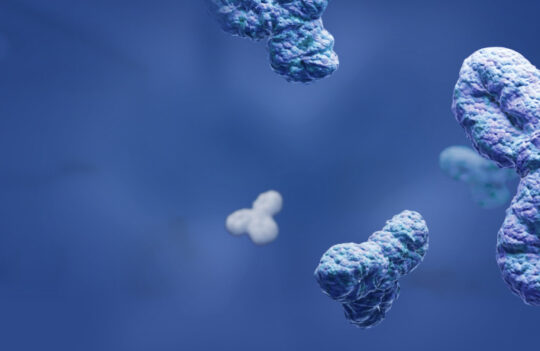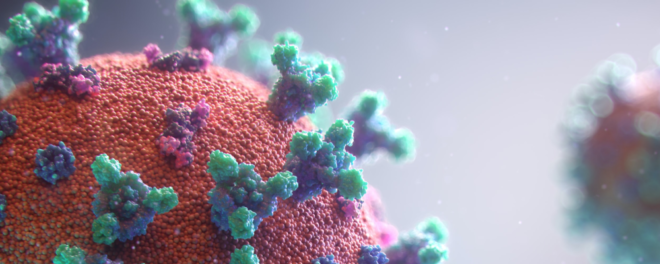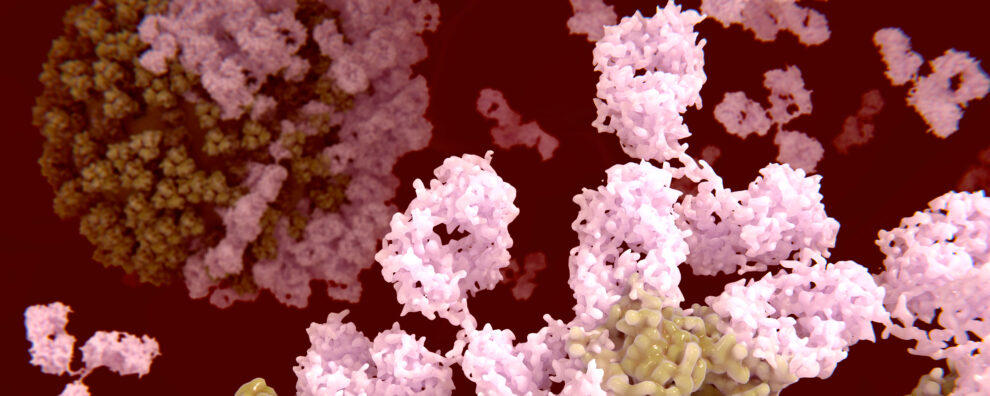 Customers success stories
Customers success stories
The Path of Creating an Innovative IL-17A Antibody for Autoimmune Disorders
At ProteoGenix, we are devoted to promoting innovative research and offering superior solutions that assist our clients in reaching their scientific objectives. Our client at the University of Naples and the University of Birmingham trusted us in creating a new neutralizing antibody targeting interleukin-17A (IL-17A), which is a significant factor in various autoimmune disorders like rheumatoid arthritis, psoriasis, and ankylosing spondylitis.
The Challenge: Anti-IL-17A for Treatment Strategies
What is IL-17A ?
IL-17A is an essential cytokine that plays a key role in the inflammatory processes that contribute to many chronic autoimmune diseases. Due to its central function, IL-17A represents a promising approach for the development of new therapeutics.
Our client’s goal was to develop a high-affinity, neutralising antibody to effectively block IL-17A and thus provide a new therapeutic option for patients suffering from inflammatory diseases.
The development of therapeutic antibodies presents significant challenges. First, the antibody must have both high specificity and affinity for IL-17A. Second, the antibody must be tested for its ability to neutralize IL-17A activity in the complex biological environment. This is where ProteoGenix’s expertise in hybridoma technology and antibody development became crucial.
The ProteoGenix Expertise: Hybridoma for Antibody Development
With over 20 years of experience in antibody development, our team of PhD scientists provides essential support at every stage of the antibody development process. For this project, we recommended hybridoma technology to achieve the desired specificity, stability and potency. This technology consists of fusing a single antibody-producing B cell with a myeloma cell, resulting in a hybrid cell capable of producing monoclonal antibodies.
Here are the major steps of the process:
Immunization and Screening:
We first immunized mice using IL-17A-derived peptides, resulting in a strong immune response. Using our advanced screening techniques, we identified B cells that generate antibodies with strong specificity for IL-17A.
Hybridoma Development:
We then isolated and immortalized the B cells. By merging these cells with myeloma cells, we generated a consistent supply of monoclonal antibodies.
Characterization and Validation:
Then, generated mAbs were assessed and characterized for their binding affinity and capacity to neutralize IL-17A. This phase was vital in confirming that the antibodies could block the inflammatory impacts of IL-17A in vitro, opening the door for possible therapeutic uses.
Antibody Optimization:
Finally, we optimized the antibodies for preclinical and clinical studies in preclinical and clinical, ensuring they guarantee the essential standards for effectiveness, stability, and safety.
A Major Advancement in Treating Autoimmune Diseases
With the confidence of the University of Naples and the University of Birmingham, we have developed a neutralizing antibody, ab17-ipl-1, that precisely targets IL-17A. The generated antibody was demonstrated to efficiently block the inflammatory function of IL-17A, positioning it as a promising option for addressing inflammatory conditions such as rheumatoid arthritis, psoriasis, and ankylosing spondylitis.
Along with the scientific advancement, this antibody development was acknowledged in a recent article in Arthritis & Rheumatology, which featured the contributions of the University of Naples and the University of Birmingham. This publication emphasizes the significance of antibodies in treating autoimmune diseases, highlighting the worth of the research carried out.
Beyond the publication, the team effectively secured a patent for the antibodies, “Novel Interleukin-17A (IL-17A)-Derived Peptide and Neutralizing Antibody (ab17-ipl-1)”, ensuring that this innovation can possibly be introduced to the market.
From Research to Therapy:
This partnership serves as a prime illustration of how ProteoGenix’s proficiency in hybridoma technology an expedite the advancement of groundbreaking therapeutic antibodies. Through our state-of-the-art services in antibody discovery and development, we enable researchers and institutions such as the University of Naples and University of Birmingham to realize their innovative concepts.
At ProteoGenix, we look forward to assisting our customers in their projects, and we are dedicated to advancing science and helping our customers find innovative answers to global health issues. This success story is just one example of how we make the impossible possible, one antibody at a time.

